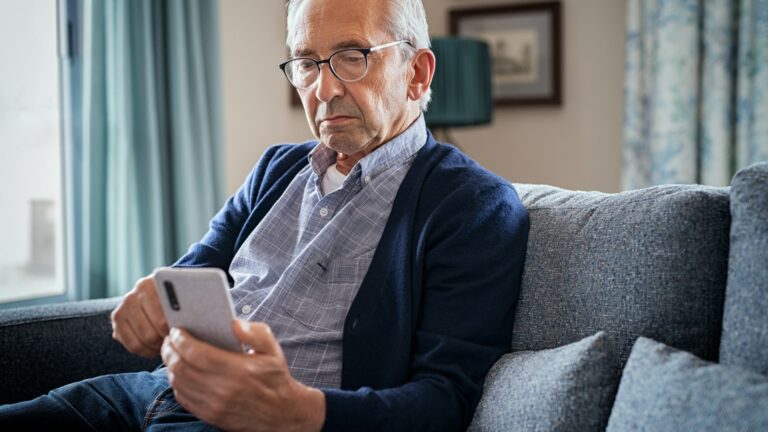Concerns and Care: Brits Worried About Elderly Parents’ Safety
Worries Mount as Adults Strive to Maintain Elderly Parents’ Independence
Over 80% of adults with aging parents express concern about their well-being and safety, while also valuing their parents’ independence, a recent survey has shown. The survey, involving 2,000 participants with parents over 70, revealed that top worries included falls, scams, and break-ins.
Prioritizing Protection
A majority—61%—of adult children are eager to ensure the safety and security of their elderly parents. Nevertheless, 46% are held back by a fear that intervening might make their parents feel burdensome.
The survey, conducted by smart home security company Ring, highlighted that 24% of respondents strive to communicate with their elderly parents at least once a week. Surprisingly, 11% would check in even more frequently if they could.
Safety at Home
Concerns about how elderly parents handle daily tasks at home persistently weigh on 71% of participants, with worries occurring up to 10 times a week. Strikingly, 12% of respondents noted that neither they nor their siblings reside near their aging parents.
Dave Ward, Managing Director UK and International at Ring, emphasized the balance between safety and autonomy. “Embracing thoughtful and innovative technology solutions like a video doorbell can offer new ways to stay connected and ensure the safety of our aging family members – without intruding on their lives.”
Preventing Issues
The study disclosed that 34% have faced avoidable issues with their elderly parents. Among these, one-third experienced a parent’s fall with no immediate assistance, while 26% voiced concerns about their parents’ lack of exercise.
Daily tasks also posed challenges, with 22% indicating their elderly parents struggled with grocery shopping, and 16% revealing reliance on home deliveries due to a reluctance to leave the house.
Open Lines of Communication
Although half of the respondents believed their elderly parents would communicate age-related issues, 32% doubted this would be the case. This uncertainty led 30% to consider employing a smart home security solution for peace of mind.
Among those already utilizing such technology, 35% found emergency call buttons most beneficial, followed by video doorbells (28%) and motion detection alerts (24%).
Reassurance Through Technology
The survey revealed that two-thirds of participants would feel reassured if they could remotely check on their elderly parents using a home security system.
Jane Thompson, a 55-year-old from South East London, shared her concerns: “My 88-year-old mum lives independently at home… A video doorbell would have given me the peace of mind I needed during this time.” Similarly, Laura Ingledew, a 32-year-old mother from Hartlepool, emphasized how a video doorbell eased her worries while she worked long hours and cared for her grandmother.
In a world where concern meets innovation, bridging the gap between safety and independence is paramount.

